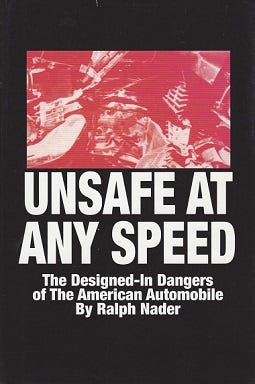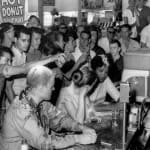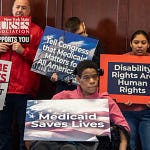“It is the public that is being asked to assume the risks that the insect controllers calculate. The public must decide whether it wishes to continue on the present road, and it can do so only when in full possession of the facts… We still talk in terms of conquest. We still haven’t become mature enough to think of ourselves as only a tiny part of a vast and incredible universe. Man’s attitude toward nature is today critically important simply because we have now acquired a fateful power to alter and destroy nature.”
Rachel Carson, from a 1963 CBS interview
It’s a tad ironic, isn’t it, that I sit before an essentially blank page, (save for the words of an iconic writer), with the title “The Power of Words” looming over me, while I ponder something semi-important to say…
Rachel Carson has been an inspiration to me since I first read Silent Spring shortly before I entered high school, nearly a decade after the book was published, and she remains an inspiration today. This book is one of the many I read as a teen that influenced my thinking and directed my passions, and probably why I declared in my first class, on the first day of high school, that I wanted to practice environmental law.
It’s hard to believe that one person could be this prescient, but just look at the the few sentences quoted above. Essentially, Carson says that our citizens must have access to all of the facts before making an informed decision to assume the risks that are inherent in the use of certain products, in this case the wide use of pesticides, particularly DTD. And as a species, humans have to be “mature” enough to realize that we cannot conquer nature, but instead must learn to live in harmony with the natural world.
Another seminal book, Ralph Nader’s Unsafe At Any Speed, The Designed-In Dangers of The American Automobile, was published in 1965, a few years after Carson’s book . This 2015 New York Times article celebrating the 50th anniversary of its publication, details Nader’s early interests and what led him to examine the issue of automobile safety. He started his research in 1956 while a student at Harvard Law School and was inspired “by books that prompted change”, specifically noting Silent Spring.
His book “shook the automobile industry” and soon Nader was testifying before Congress, which led to the establishment of a new agency and federal laws to regulate the automobile industry.
“In September 1966 — about 10 months after the book was published — President Lyndon B. Johnson signed the National Traffic and Motor Vehicle Safety Act, requiring the adoption of new or upgraded vehicle safety standards, and creating an agency to enforce them and supervise safety recalls”.
This federal agency, the National Highway Traffic Safety Administration (NHTSA), published a report in 2015 summarizing the impact of federal automobile safety standards:
“…between 1960 and 2012 auto-safety measures, most of them government-mandated, had saved 613,501 lives, and that the fatality rate per mile of travel fell by eighty-one per cent, substantially because of safety-enhancing changes in automobile design.” (emphasis added)
Even Nader’s foes in the auto industry admitted that his book and Congressional testimony had a positive impact:
“The book had a seminal effect,” Robert A. Lutz, who was a top executive at BMW, Ford Motor, Chrysler and General Motors, said in a telephone interview. “I don’t like Ralph Nader and I didn’t like the book, but there was definitely a role for government in automotive safety.”
Rachel Carson also testified before Congress after Silent Spring was published, and her testimony, along with the discussions it provoked, sparked the environmental movement, including numerous federal laws to protect the environment from industrial practices, from the manufacture and use of pesticides to the Clean Air Act, Clean Water Act, and the regulation of solid and hazardous waste, among others. Even the American Chemical Society, in a booklet written in 2012 to commemorate the 50th anniversary of the publication of Silent Spring, stated that:
“Carson’s scientific perspective and rigor created a work of substantial depth and credibility that sparked widespread debate within the scientific community and the broader public about the effect of pesticides on the natural world. These discussions led to new policies that protect our air, our water, and, ultimately, our health and safety.”
With decades of hindsight (and the articulate voices of important writers), I better understand that words, in the the right hands, are powerful tools to change our thinking as individuals and as a society. And often those words are captured in federal laws that in turn, save millions of lives and transform our society
Today, easily a third of our population wants government totally out of our lives. “Big government”, including the laws that regulate how companies conduct business, laws that protect consumers, our health and environment are anathema to them and viewed as an unnecessary intrusion upon their right to conduct themselves as they please.
But you are the people I want to hear from. What do you think about government regulation and the issues raised in this post? How far has our thinking progressed in the six decades since the publication of Silent Spring and Unsafe At Any Speed ? Have we matured yet?
And finally, what books do you think impacted our society for good or ill?
Please share your thoughts in the Comment Section below.
And to help me celebrate a full six months of publishing Crime and Punishment, why not sign up for a free or paid subscription to help me continue my work!
Additional Reading:
A list of resources I used in this post plus a special link to Business Insider’s list of the “Books That Changed American Policy”
4. https://archive.nytimes.com/www.nytimes.com/books/97/10/05/reviews/carson-obit.html?simple=True
5. https://www.businessinsider.com/books-that-changed-american-policy-2018-4

















Share this post